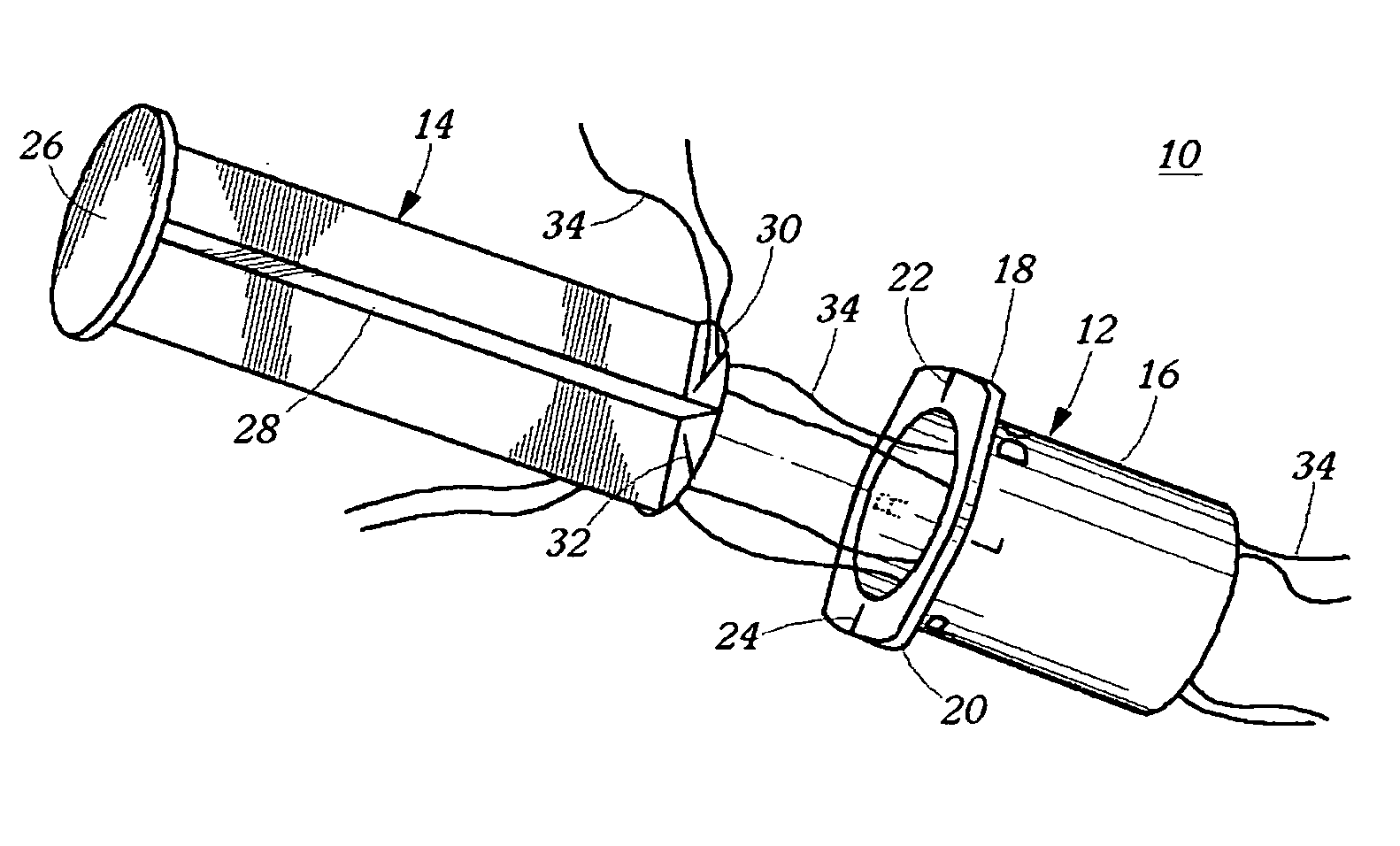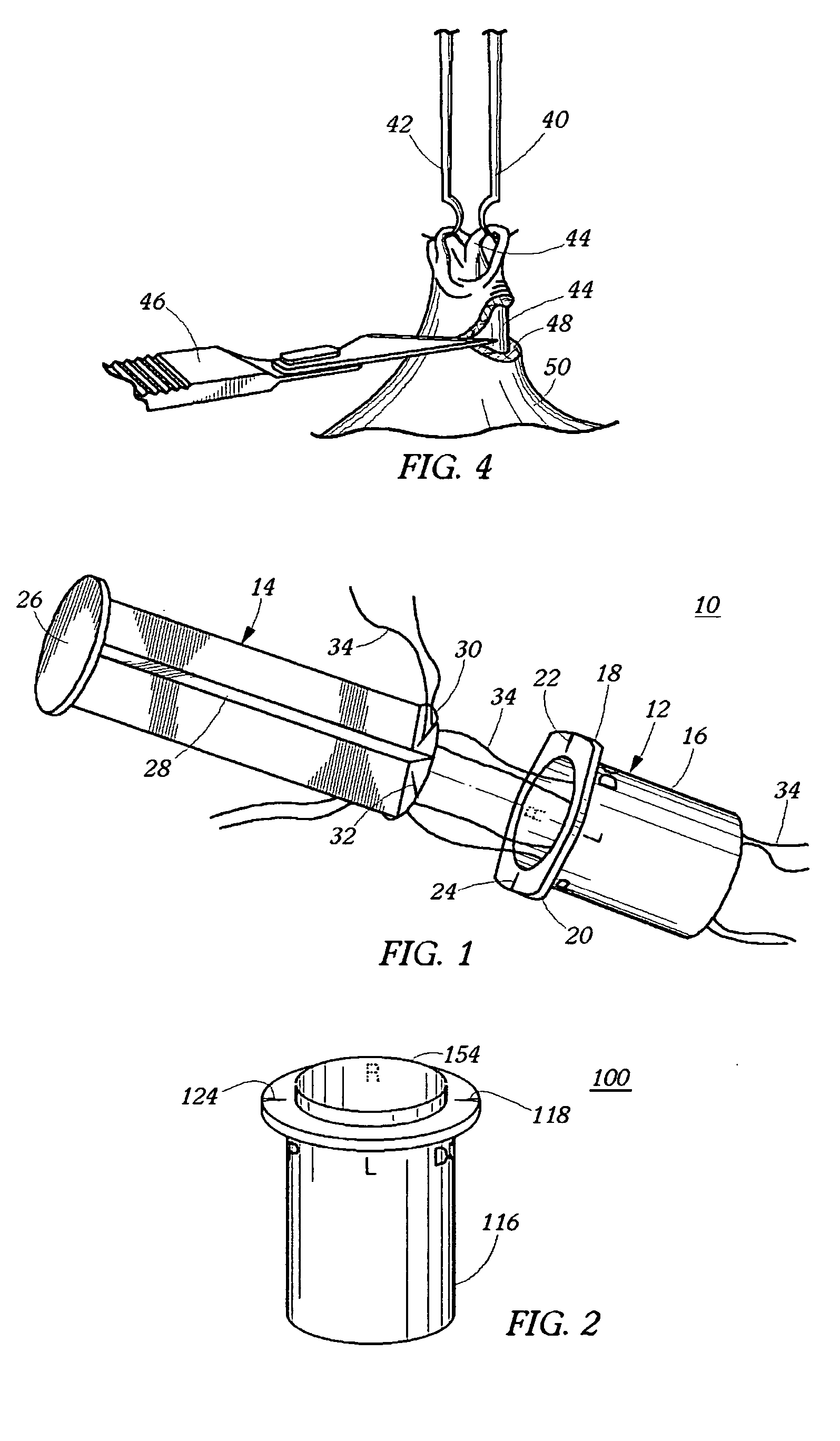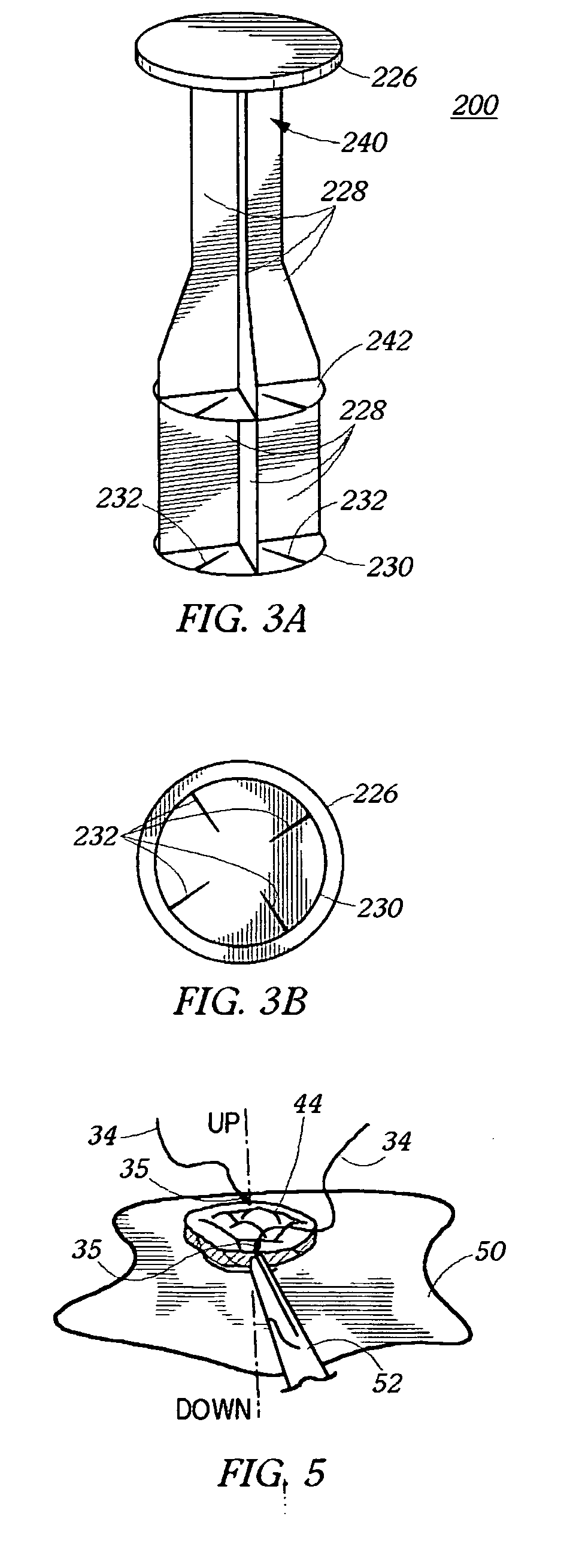Method and device for umbilicus protection during abdominal surgery
a technology for umbilical cords and abdominal surgery, applied in the field of abdominal subcutaneous surgery, can solve the problems of disproportionate enlargement of abdominal cords with weight gain, severe medical problems, and accompanied by minor discomfort and pain, and achieve the effects of preventing twisting facilitating umbilical cord transposition, and preventing strangulation of the umbilical cord
- Summary
- Abstract
- Description
- Claims
- Application Information
AI Technical Summary
Benefits of technology
Problems solved by technology
Method used
Image
Examples
Embodiment Construction
[0042] The instant invention provides a method and device for umbilicus protection during abdominal surgery and particularly a surgical procedure where safe complete circum umbilical dissection of the umbilical pedicle down to abdominal fascia needs to be performed. Their use, however, is not intended to be limited to these types of surgery alone. Any abdominal surgery wherein the umbilicus site is invaded is intended to be covered by the instant invention. The method and device of the instant invention are particularly advantageous in protecting the umbilicus during abdominal subcutaneous surgery; however, they are particularly useful in plastic reconstructive and aesthetic surgery wherein umbilicoplasty is performed as part of an abdominoplasty procedure. It will be realized by the skilled artisan that the following description is exemplary in nature and embodies advantageous ways of practicing the claimed invention but is not exhaustive of the devices, which are available. As lon...
PUM
 Login to View More
Login to View More Abstract
Description
Claims
Application Information
 Login to View More
Login to View More - R&D
- Intellectual Property
- Life Sciences
- Materials
- Tech Scout
- Unparalleled Data Quality
- Higher Quality Content
- 60% Fewer Hallucinations
Browse by: Latest US Patents, China's latest patents, Technical Efficacy Thesaurus, Application Domain, Technology Topic, Popular Technical Reports.
© 2025 PatSnap. All rights reserved.Legal|Privacy policy|Modern Slavery Act Transparency Statement|Sitemap|About US| Contact US: help@patsnap.com



